Hazel Jungbacke is the youngest daughter of the late Feodora Clouts. A social worker by profession, she worked for over twenty years for the Highlands House Jewish aged home in Cape Town.
.
The title of this article is taken from the obituary of Feodora Clouts (1899-1996) by Willie Katz. It well sums up the impact and energy of this remarkable woman, a redoubtable Jewish communal worker, Zionist activist and educationalist, and the mother of, amongst others, the distinguished South African poet Sydney Clouts.
Feodora was the fourth child of Latvian immigrants to South Africa Wulf and Jenny (Sheina) Friedlander. Born in Mitau, Courland, in 1846, Wulf and his brother Isaac arrived at the Cape in 1879 and settled in Rhenosterfontein, where they opened a trading station. Twenty years later, they purchased the farm De Aar for the sum of £11 000. In 1902, they subdivided it into a township, today the main railway junction between Cape Town and Kimberley. In his book Karoo (1955), Lawrence G Green refers to the Friedlander brothers as “great figures in the railway camp. During boom times they often filled bucket after bucket with sovereigns in the course of the day. Farmers who distrusted the banks left their money in the safe at the Friedlanders’ store”.
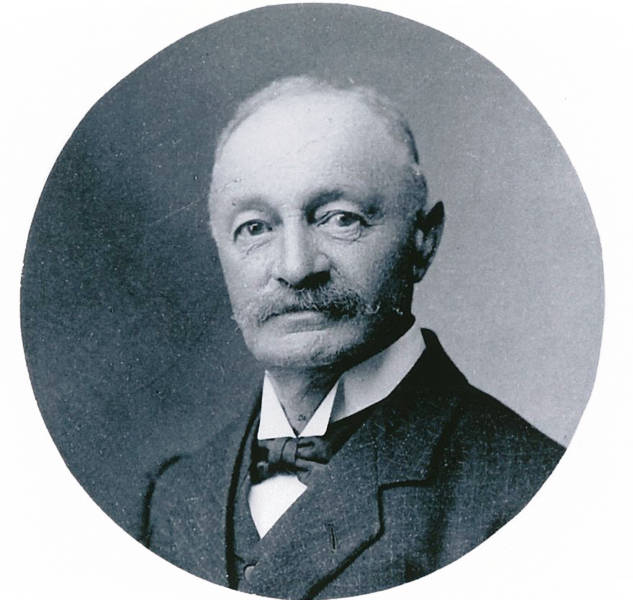
Wulf Friedlander (1846-1928)
During this time, Wulf returned to Latvia where he married a first cousin, Jenny, in 1892. He was 46 years old! This author, his grand-daughter, has a much treasured leather bound collection of the telegrams received on the occasion. The couple had five children before Jenny’s untimely passing. Wulf was sufficiently wealthy to travel back to Courland in 1904 with his five children. There he married Johanna Hermer in Konigsberg. Johanna came from Grobin and had attended high school in Libau. Feodora refers to her as a “fine and cultured woman, educated and musical and, a beloved step mother”. They had three children together, Max, Sybil and Kenneth. The family then went to London but had hardly settled when Isaac Friedlander lost the family fortune on the London Stock Exchange. They returned to Cape Town and from there moved to De Aar. Feodora mentions a little railway school they attended until standard six. She remembered the family receiving the SA Jewish Chronicle regularly and how much they loved reading it.
Olive Schreiner was a regular visitor and there are treasured letters from her thanking Mrs Friedlander for her cake and enquiring about the health of “the little one”. In an interview with John Simon in 1981, Feodora remembered how fascinated she was watching Schreiner pacing up and down loudly declaring her views on feminism. It had a profound influence on her. Minna Levitas writes that Feodora was “an avid fighter for the place of women in the ranks of masculine control in the Zionist circle”. This is backed by an interview with Anne Sarzin in the Zionist Record of 1 May 1981, where Feodora recalled “the narrow outlook that characterised so many of the men who were in the foreground of Jewish and Zionist activity decades ago”. In an interview with Gwynne Schrire, she also describes how ladies were expected to serve tea for Dorshei Zion functions but not invited to attend. She felt that as Chairman of the Bnoth Zion (BZ) she should be allowed in the gallery. When she arrived Mr Gitlin said “you can’t come in “and the reply was” I am the chairman and I insist that I come in”. This was the beginning of South African women Zionists asserting themselves!
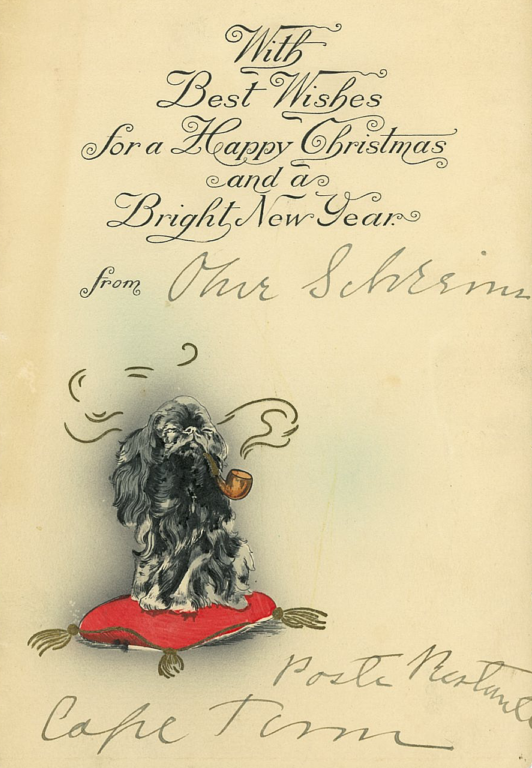
New Year’s card to the Friedlander family from Olive Schreiner
Feodora and her sister Annetta attended Ellerslie Boarding School, Sea Point, for two years. I quote from two precious letters sent to them by their father during their stay:
Firstly, above everything remain Jewesses and be proud of it in all your actions and deeds. Never be ashamed of acknowledging that you belong to a Great Race.
Secondly, be honest and truthful in all your actions, as one falsehood leads to endless falsehoods.
Thirdly, I want you to be ladies in the true sense of the word. I do not mean that you should show off either in your dress or loudness of talk as you will find that the more loud and ostentatious they are, soon people get tired of their company.
Fourth, treat your teachers with all the respect due to them
Fifth, do your lessons first and then you can have your play as I wish you to get all the education possible.
Another letter asks them to respect the Sabbath, for which they would be “all the more respected by Jews and Christians alike.”
All this from a Latvian immigrant with no formal lessons in English! Wulf had received a Talmudic education but otherwise was a self-educated man who read widely. Feodora described him as religious but not “superstitiously Orthodox.”
In 1914 Wulf and his family, now in very reduced circumstances, moved to Cape Town. Feodora became a pupil at Good Hope Seminary, where she obtained a first class matric and then a bursary enabling her to study at the University of Cape Town. At UCT, she was elected Head Woman student in 1919, the second woman to receive this honour as the university was established in 1917.
In an article by Mary Simons (UCT Alumni 1986), Feodora mentions the cool attitude towards the Coloured and Jewish students (there were about twenty Jewish women) and a superior attitude towards the Afrikaners. Cissie Gool and Waradia Abdurahman were students at the time. However despite the prejudices mentioned above the university “was like a family”.
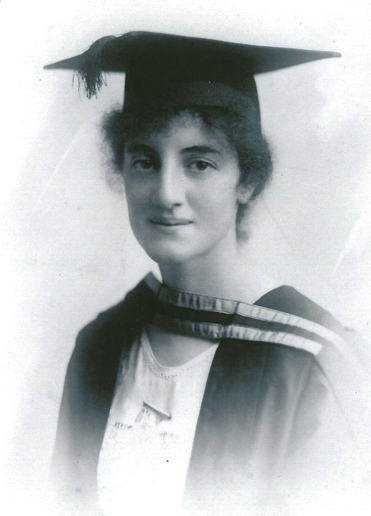
After graduating in 1920, Feodora taught in Cradock and then Boshoff. She recorded that there were three Jewish families in Boshoff and they did not talk to one another (“I was the only one who talked to the whole Jewish community!”). During this time she was in correspondence with a young lawyer, Phil Clouts, who had recently returned to Cape Town after reading law at St John’s College, Cambridge. Rev A P Bender, who had given Hebrew lessons to the two sisters at Ellerslie, encouraged the beginning of a Student Jewish Association at the University and through this the students formed a committee to collect money for a Judaica section at the University library. Phil was also involved and this is how he met Feodora. Sara Sloman and Feodora collected £600 and Chief Rabbi J H Hertz advised on the selection of books that were sent from London.
Feodora and Phil married in January 1925 and twin boys Sydney and Cyril and daughter Jenny arrived in quick succession. I was born somewhat later, in 1940. Although very involved with domestic chores Feodora helped Morris Alexander, MP, in an election campaign. She commented how hard they worked and how a bonus had been meeting Mrs Ruth Alexander (daughter of the famous Judaic scholar Solomon Schechter), “a remarkable woman”.
The following is taken from Sarzin’s 1981 article:
This campaigning might have been a contributing reason for a deputation to Feodora soon after (1929), by members of the Bnoth Zion, asking her to become their chairman. She was not even a member but accepted for a two-year period. She was instantly propelled into the forefront of the conflict between the association and Dorshei Zion, the men’s society. Feodora warmly remembers women of the calibre of Rebecca Zukerman, who stood for Zionist ideals not yet accepted within the community and who would stand up to Jacob Gitlin (a “remarkable dictator, not out of self-interest, but single minded and the women very acquiescent”). She regretted very much that the minutes of the 1929 meetings had been “thoughtlessly discarded”, since these “would have provided a storehouse of information to modern researchers of the communal beginnings in South Africa” and also “revealed the bitter conflict between the BZA and the DZ which high-handedly appropriated the proceeds of BZA fundraising efforts”.
There were arguments about everything. Their idea of establishing a Hebrew nursery school was considered unacceptable. There was opposition on all sides. Rosa Van Gelderen, then principal of the Girls Central School in Buitenkant Street, wrote to the SA Jewish Chronicle maintaining that it was an excuse for lazy mothers wishing to be rid of their children. Shoshana Gordon, a teacher from Israel (Palestine) steeped in the Froebel system, persevered and by 1930 the BZA occupied premises, loaned by Mrs Max Cohen, in Molteno Road. The school flourished and a second nursery school was opened in the Zionist Hall, Hope Street. Feodora mentioned to John Simon that a great deal was also owed to the large influx of young women who had had a very fine education, including Hebrew, at Lithuanian Hebrew schools. This influx was due to the Quota Bill that had just been promulgated.
The Quota Bill led in 1930 to a delegation representing various Jewish organisations and synagogues coming together to approach the Minister of Interior, Dr D F Malan, to get some relaxation of it terms, which would heavily impact on Jewish immigration from Eastern Europe. It comprised some thirty people, including MPs Morris Kentridge (father of the famed lawyer Sydney and grandfather of the artist William Kentridge) and Morris Alexander. With much feeling, Feodora told Simon how they were received and how she would never forget the “indignity that we were made to stand as beggars [while] Malan sat there expressionless, cool and aloof.”
Feodora recalls a Zionist conference held in Cape Town in 1930, her strongest recollection of which was that those who spoke most and so well were the Revisionists. There was a lot of argument because Jabotinsky’s ideas were beginning to be talked about. In fact, Jabotinsky visited that year and Feodora, in her capacity as BZ chairman, hosted him for many meals at home. She later told Simon that he was “one of the few people that she had contact with that she was grateful for, if for nothing else, the opportunity of having met and spoken to him and his wife. There was an aura about Jabotinsky and even though his ideas were controversial one could recognise he was a great man. People treated him very badly especially as [Jacob] Gitlin did not like his ideas and the BZ was the only organisation that gave him a formal reception to thank him for having come and to pay him respect because he was a man who gave his life to his people.”
Also mentioned were visits by other emissaries. In a letter from Rebecca Sieff (August 1931), after her visit, she writes that she had written “an article for the SA Jewish Chronicle on Youth Aliyah in fulfilment of a promise extracted from me by your redoubtable Mr Gitlin.”
Another high-level visit was by Dr Chaim and Vera Weizmann for the Keren Hayasod. As a founder of Wizo, Mrs Weizmann “was an inspiration to the local women.”
Feodora goes on to speak of her friendship with Tony Saphra, whose dream it was to form a Union of Jewish Women (UJW) whose purpose was to complement the work of the Zionist organisations and to combine Jewish with civic and interdenominational activities. Together they co-founded the Cape Town branch in 1932. There was opposition at that time from people like SA Jewish Chronicle editor Marcia Gitlin, who thought there was no need for another Women’s organisation. There was also antagonism from other groups such as the Women’s Zionist League, founded by the Weizmanns when they came out that same year.
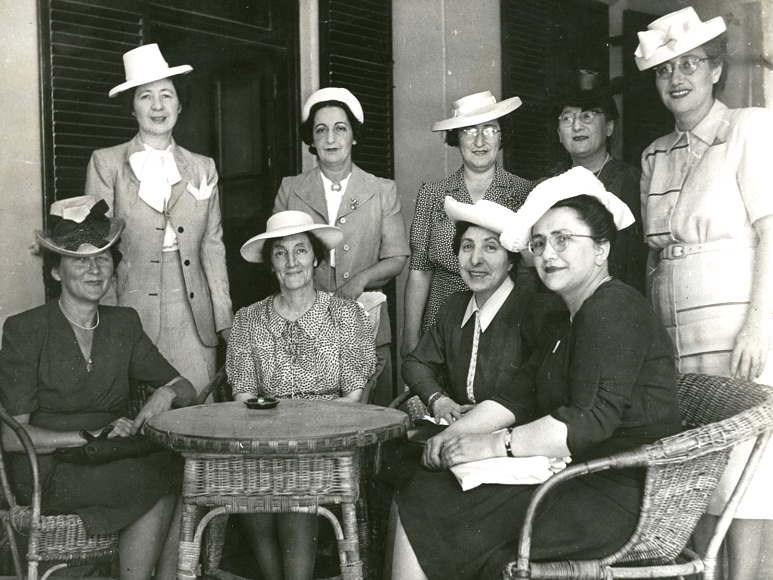
Union of Jewish Women committee (undated). FC seated, behind table
Feodora’s concerns stretched beyond Jewish communal affairs to the great inequalities in South Africa, particularly regarding education. In 1935 she was approached to stand as a candidate for the Cape School Board, was elected and spent ten years as a member. It was a terrible experience for her when the ‘purge’ started, that is the weeding out of those of not complete ‘white’ ancestry. She and Phil joined the non-racial Liberal party at its outset.
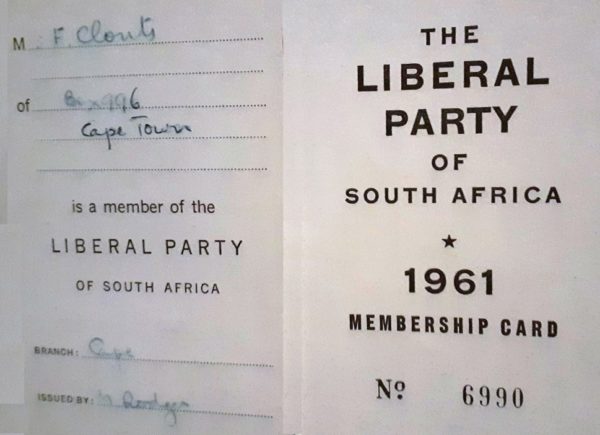
Rev Bender was also a member of the Board. It was he who persuaded Phil to further his studies at St John’s College, Cambridge. Feodora considered him to be “a man of fine scholarship and no pretensions.” Rev Bender had no compunction about entertaining the Reform leader Rabbi M C Weiler and did not see the Reform movement as a threat. He gave lectures on art and had told the sculptor Lippy Lipschitz that his collection of pictures, sculptures and furniture was ’his greatest pleasure.’ Feodora treasured a book of fairy tales, illustrated by Edmund Dulac, that he gave her, with an accompanying note expressing the hope that the illustrations would “prove an inspiration” to her.
Feodora’s great challenge came when she was appointed full time organiser of the U.C.F. in May 1956. Chairman Dave Cohen, paying tribute on her retirement (January, 1967) said that “this date became for the U.C.F. and indeed the whole Cape Jewish Community a very significant date. Slowly and quietly Feodora converted a state of chaos and a very unpopular cause into a first class organisation.” She stood here, he continued, "frail, gentle but behind this frail gentleness of hers there is a concentrated steel fibre---- I may have been the chairman but the real boss was Feodora Clouts. Let me tell you ladies and gentleman that I was the Rebbe but here was the Rebbetzin!!”
Philip suffered a serious heart attack in 1942 and his career in law became limited. His condition sadly deteriorated until he became a semi invalid. When he passed away, aged 67, in November 1957, the SA Jewish Chronicle reported on a last tribute paid to him by his colleagues in the Supreme Court. On behalf of the Bar and Side Bar, H M Bloch QC addressed the gathering, making special mention of the help and encouragement which the deceased had received from his wife.
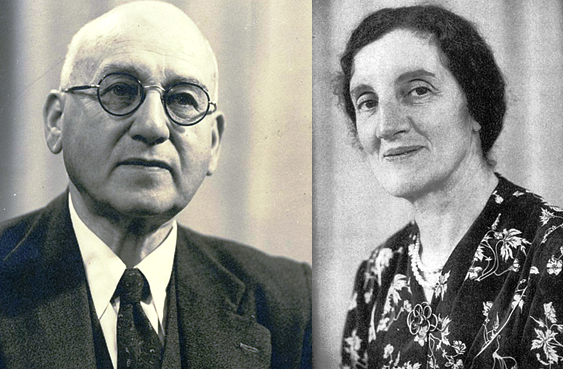
Philip and Fedora Clouts
Soon after her retirement Feodora joined her family in London. Both sons and two devoted daughters-in-law plus three grandsons received her with open arms. Hazel had already joined them in 1966. Her sister Jenny and family were living in Miami and Feodora was a regular visitor. Hazel, with her newly wedded husband, returned to Cape Town in November 1970, preceded by a few months by Feodora. She was a devoted mother, mother-in-law and granny to Hazel, Tonny, Cara, Nils and Gina.
In 1979, the year of Feodora’s 80th birthday, Herzlia High School held a reception to recognise her and Phil as pioneers of Jewish education. The newly established Judaica library was named in their honour.
Honoured again by the UJW in 1985: “Her perspicacity, wit and humaneness grace her at 86 as they did in her youthful days - She is held in the highest esteem by the UJW and the Jewish Community of Cape Town”.
Feodora passed away in 1996 just before her 97thbirthday. Until two years prior to this, she had continued to enjoy the New York Review of Books sent to her by a caring nephew. The deaths of her sons preceded her but she was enormously proud of Sydney’s achievements in the realm of poetry. Cyril’s contribution to early electronic music was only acknowledged in a book published in London a few years ago. How proud that would have made her too!
- With thanks to Marge Clouts for her guidance and advice.